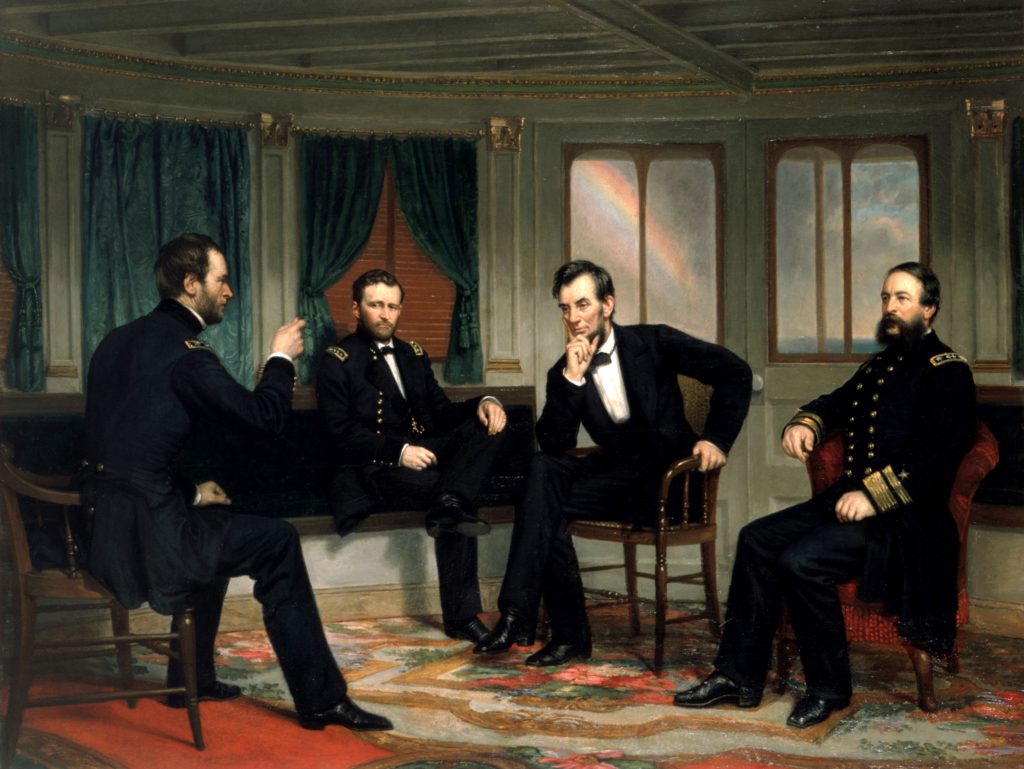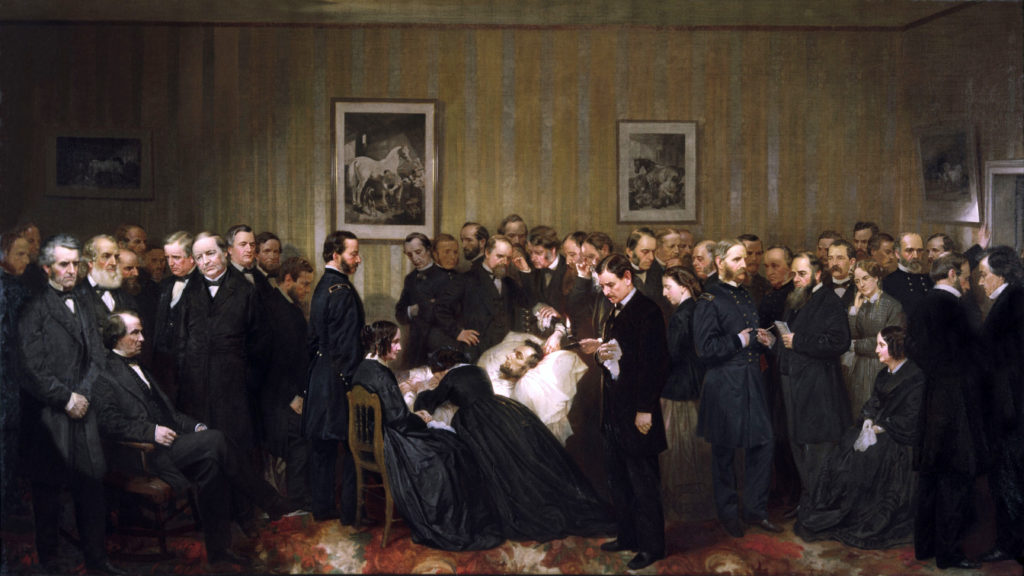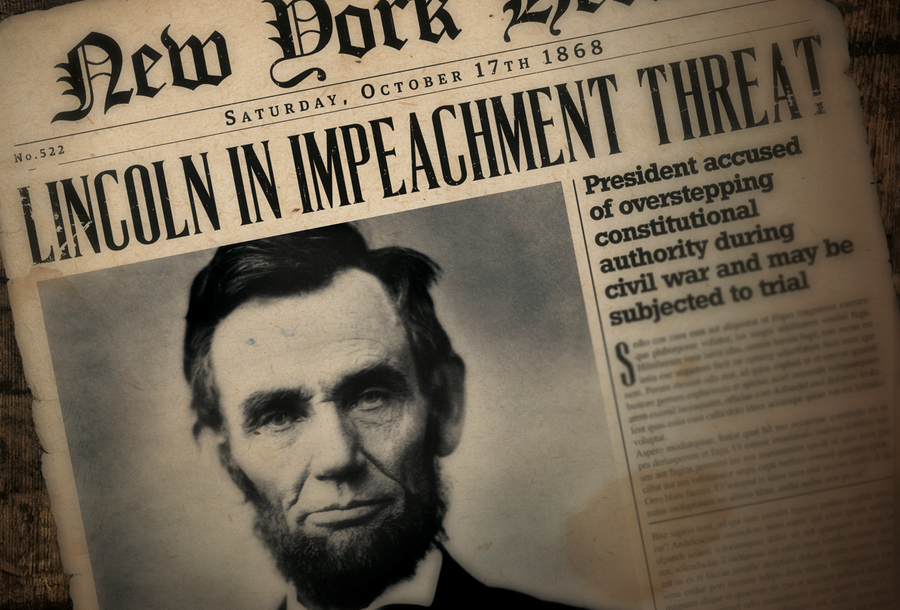Professor Stephen L Carter discusses the possibilities had the President survived assassination
Subscribe to All About History now for amazing savings!
What if Abraham Lincoln hadn’t been assassinated?

It’s a question that many historians – and many writers – have pondered over since that fateful day in 1866. In short, had Lincoln survived his assassination (or if someone else had been shot in his place, such as the original intended target, Andrew Johnson) history would have certainly deviated. However, Lincoln’s actions before and during the Civil War would have ultimately sealed his position as one of the most tenacious yet pragmatic politicians to have ever held office in the United States.
Had Lincoln lived, would there have been further attempts on his life?
From the records we have, it appears that most of the former leaders of the Confederacy, including many of the members of the planter aristocracy, were appalled at Lincoln’s assassination. This was not, as some Southern apologists used to argue, because of some sense of honour, still less from a moral squeamishness. The leaders saw Lincoln, who had so crushed them, as their best hope of holding off radical demands for further punishment of the South.
Incidentally, some of Lincoln’s rivals did worry that he might seek a third term in office, contrary to what was then still the unbroken practice of US presidents. There were even rumours that he planned to serve as president for life. How these fears would have played out had he lived – or even whether he would have run again in 1868 – there is no way to know [whether that would have happened].
What were Lincoln’s reconstruction plans for the country after the Civil War had ended?
Carter: Lincoln was somewhat cagey on his precise plan for reconstruction. He began publicly discussing how to reconstruct the South in 1863 and 1864, while the war was still going on. Many historians therefore take the view that Lincoln’s plan should be taken with a grain of salt: he was quite likely dangling it as a carrot, to induce some or all of the states in rebellion to surrender. We don’t know for sure what he would have done later.
This plan had three essential elements. The best known is probably the “ten per cent” rule, holding that a state in rebellion could be readmitted once ten per cent of its eligible voters foreswore the Confederacy and pledged allegiance to the Union. At that point, the state would be allowed to form a new government, create a constitution and send representatives to Congress. Second, Lincoln promised to pardon all those who took part in the rebellion, apart from the high-ranking leaders. Third, he promised to protect private property other than slaves.
This last point was particularly clever. It’s often forgotten that slaves were owned mainly by the planter aristocracy. The poor and working-class men who fought for the Confederacy were very unlikely to come from slaveholding families.Throughout the South, resentment of the slave-holding class was considerable. This resentment helped the northwestern corner of Virginia to secede from the state during the war (laying the foundation for the state of West Virginia), and might easily have led to secession (and return to the Union) of the western hills of North Carolina, where poor farms were plentiful and slaves were few.

Would Lincoln have been willing to compromise?
Lincoln was a wily politician – one of the best at the art of horse-trading. Had he lived, he likely would have reached a compromise with the radicals. He preferred, as he liked to say, an oath in which a man would pledge to do no wrong hereafter (as opposed to an oath insisting he had never done wrong), but he also made it clear that he could live with the stronger oath that Johnson preferred. The parties would surely have settled on some percentage between – perhaps 25 – of the eligible voters.
What’s harder to predict is what Lincoln would have done about the freedmen. He wound up in a position of largely supporting black suffrage – not at all where he had begun – but he insisted that it not be made a condition of readmission to the Union. It isn’t clear what sort of civil-rights legislation he would have supported. However, even had he supported the bills that Congress adopted after his assassination, the chances are that the Supreme Court would have held them unconstitutional anyway, which is what happened.
Andrew Johnson was eventually impeached by Congress – had he lived, would Lincoln have faced a similar fate?
Here I want to be crystal clear. Although I have written a novel imagining a world in which Lincoln lived and was impeached, I do not think it likely that he would have been impeached. He was, as you suggest, too savvy. I am not sure that, as in my novel, he would have used various intrigues to battle his opponents. But I think he would have found compromise on the big issues.
Moreover, I doubt his opponents would seriously have tried. Lincoln enjoyed enormous prestige in the Union, without regard to the disdain in which he was held by the leadership of his own party. Breaking down that public support would have been an enormous task, and one that I suspect the leaders of the radicals would have hesitated to undertake.
How would the journey toward civil rights for all US citizens been different under Lincoln’s direction?
This is a question over which many historians have puzzled. Lincoln himself evolved during the course of the war. Originally he was against slavery, but thought the freed slaves should be returned to Africa. Originally he took the view that perhaps some of the more intelligent black men should be allowed to vote, but that was all. Lincoln also took the view that the white man and the black man, whatever their legal rights, could never be truly equal. He was a product of the frontier in which he grew up, and his views for that time and place, were actually somewhat progressive.
During the war years, his views began to change. He became content with the idea that the freed slaves would stay in the United States. He seemed to embrace the cause of what was known as “universal Negro suffrage.” As I mentioned above, I don’t want to claim that had Lincoln lived, the great sweep of history would have been different. That attaches too much importance to a single individual. But would there have perhaps been more progress, more swiftly, at least in a few areas? I would like to think so.

What would the repercussions of such an impeachment have been for Lincoln? How would it have affected his political career and ultimately his place in history?
Those who are martyred often fare better in history than those who are not. In Lincoln’s day, it was common for members of the educated classes to claim that every president since Andrew Johnson (whom the elite didn’t like anyway) had been mediocre. Lincoln plainly wasn’t mediocre; the Civil War, the Emancipation Proclamation, and the 13th Amendment proved that.
I think his place in history would, or should, in any case have been secure. But it is the assassination, I think, that raised him to an exalted status that leaves him difficult to criticise. Would I still consider him, as I do, the greatest of the US presidents? I would like to think the answer is yes. But of course I have no sure way to tell.
Lincoln had to make some rather unpopular, perhaps even brutal, decisions to help facilitate the end of the Civil War. What would the repercussions have been for him following the end of the war?
In prosecuting the war, Lincoln suspended the right of habeas corpus. He ignored court orders to release prisoners. He allowed his secretary of state and his military to imprison journalists. He had his secret service read every telegram sent in the United States. He used force to prevent the Maryland legislature from meeting to vote on secession. The list goes on. Lincoln did many things any modern president would be impeached for. But it’s important to remember that the office itself was young in his day, and his understanding of his own powers arose at a time when the government was weak, and the need for action was strong. I’m not justifying the things he did; I’m just trying to place them in context.
Originally published in All About History 18
Subscribe to All About History now for amazing savings!

